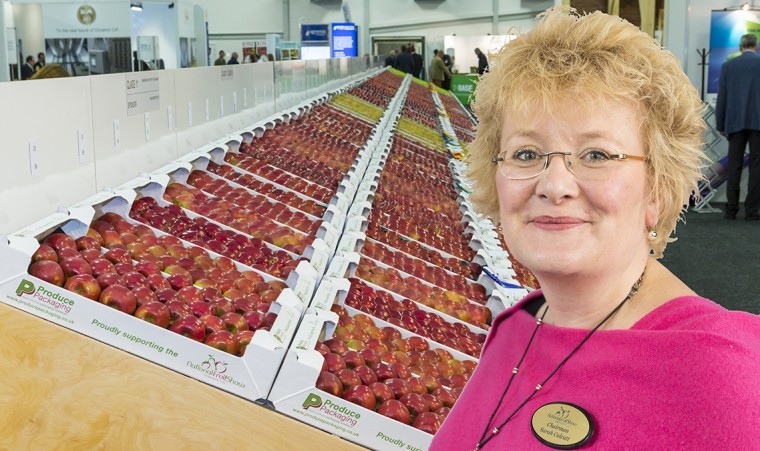Yesterday I spent a very pleasant afternoon walking some of the most beautiful orchards in the UK.
A stunning view, exemplary orchard management, a range of top and stone fruit, mostly planted in the last few years. The sun shone, the bees were buzzing, you could smell the bluebells and the visitors I was with were absolutely blown away. We talked about integrated pest management and what it meant for environmental sustainability, discussing why a hedge under planted with nettles was a wonderful thing for pears these days and why this is a big step change in an orchard, how we could now grow apricots in Kent, the pressures of quality management throughout the season and what was coming next for British growers. It helped enormously that the host grower believes in being open about his farm and crop, wanting to be part of a project to put the UK industry in a favourable light, to talk about the joy of being the sixth generation of his family to grow fruit in Kent, to care for this wonderful site.
He did also talk about the pressures exerted by the supermarket discount wars, how this has meant diminishing returns for growers and pressure to keep moving forward with investment in cost saving and quality improvement technology. We were also shown spotted wing drosophila traps, part of a monitoring network tracking the progress of this devastating pest through the soft and stone fruit fields of the UK.
There is much speculation about grower group alliances at present with a much anticipated announcement soon I hope. However it settles out it will surely be about strength in numbers, savings through a centralised operation, the investment in technology that improves quality and volume performance. Broadly speaking there is great support from retailers but we have to realise that they are dictated to by the needs of the wider business: a shareholder is going to complain if their dividend is reduced because of a principle driven rather than an economically sensible purchasing strategy.
Look at the reports on Tesco in the last few weeks. Not all of that staggering deficit is about revaluation of their estate (and they won’t be the only ones seeing a substantial drop once all of the land grab kings have to put accurate and current valuations on their property). It is about the pressures of discounters and a price driven public who don’t have the money to have principles about where their food comes from.
Elsewhere you will have read a report on the annual meeting of the Marden Fruit Show Society. Our new format annual meeting was well received and our stellar lineup of speakers delivered a broad range of presentations. Adrian Barlow gave a comprehensive report on how growers’ money from a special promotional levy has been used to raise the awareness of the amazing home grown apples.
The season has seen excellent sales rates but as mentioned above, returns and the capital needed for investment have not been so buoyant. We were very excited to have the new head of agricultural banking Mark Suthern as well as Guy Smith vice president of the NFU: both shared their viewpoint of our industry and our place in the wider political and farming forum.
Politics was carefully avoided: the unspoken elephant in the room was concerns over the lack of positive commitment to a technically advanced food production sector in the UK. The election has so much depending on it from our perspective – the big question of labour and the naïve viewpoint of some as to where our hundreds of thousands of harvest workers are going to come from. Reading the NFU manifesto, an excellent briefing paper for policy makers, there were some clear solutions to the big issues. I only hope that it has been read by all party members who aspire to represent us!




